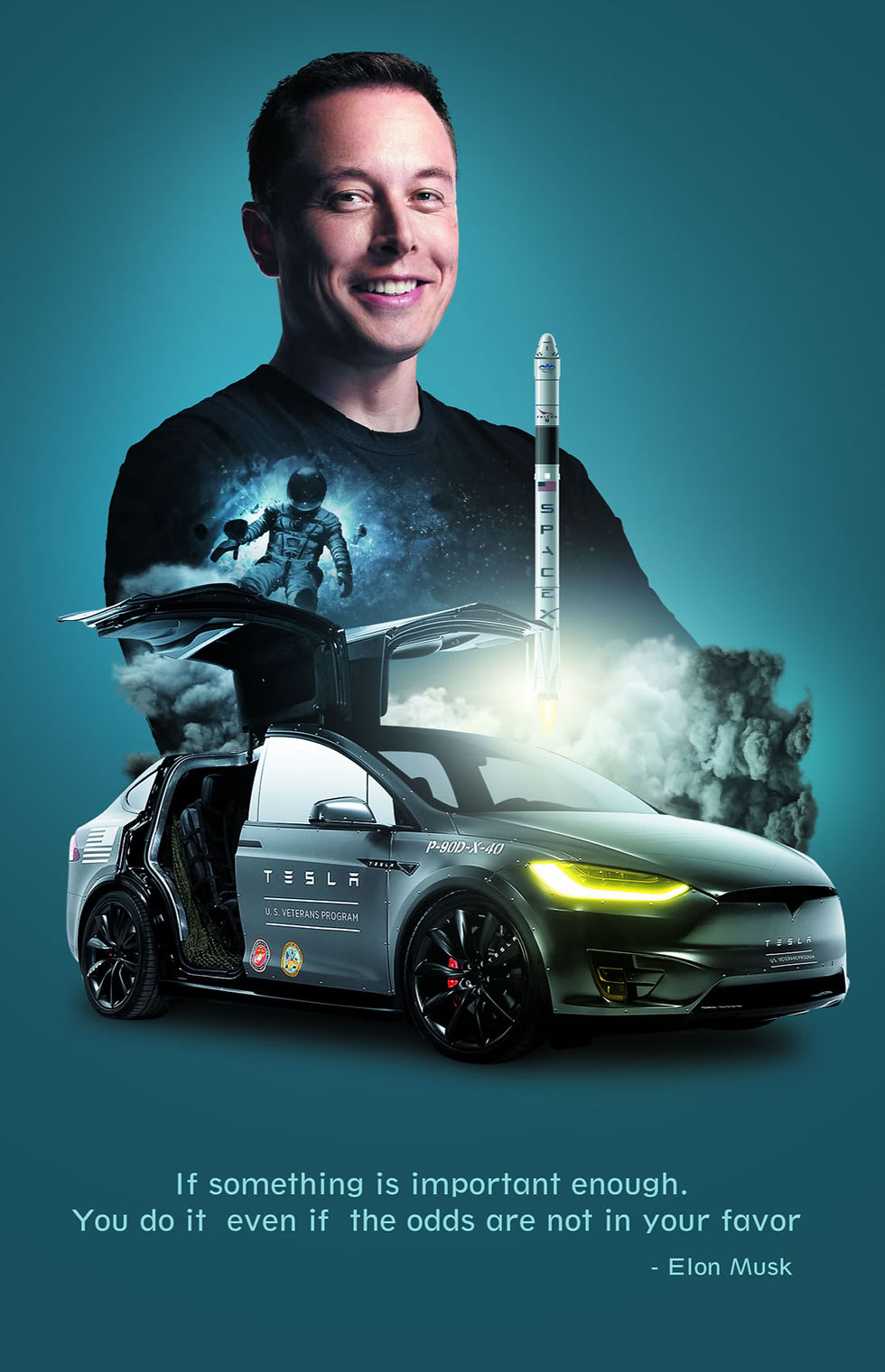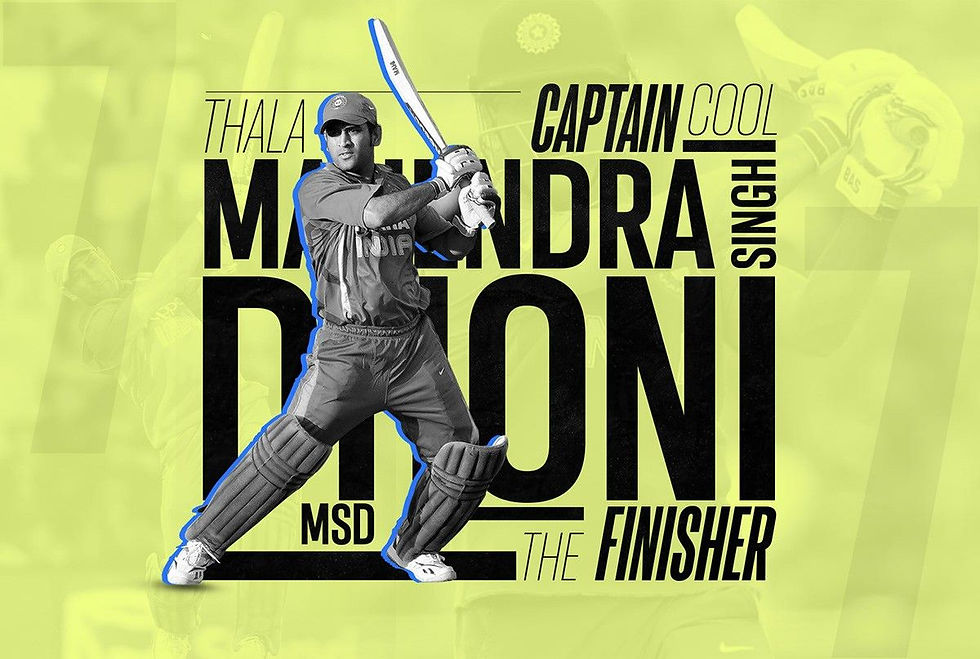“What If I Fail?” – Why That Question Should Never Stop You!
- roybarnali
- Apr 18, 2025
- 8 min read
Updated: Apr 28, 2025
Series 01 Blog 03 - Barnali
The content of this blog is now available as a podcast too. If you are an auditory consumer of wisdom, listen to this scintillating exchange below:
“Failure is simply the opportunity to begin again, this time more intelligently.”— Henry Ford
Let’s be honest – has this thought ever crept into your mind?
“What if I fail?”
“What if I try and people laugh?”
“What if I’m just not good enough?”
Now imagine this – you’ve prepared for weeks, skipped Netflix, given up Maggi at midnight (tough, I know), and still things don’t go your way. Ugh!
Just like Rohan from Class 9 who bowled till his arms felt like noodles but didn’t make it to the school cricket team. The poor guy didn’t even touch his favorite samosa at lunch that day.
Or take the case of Ananya from Class 11, who stood frozen in front of her school notice board. Her name wasn’t on the list of students selected for the inter-school debate competition. She had practiced for weeks, stayed up late perfecting her content, even skipped her favorite dance class for extra prep.
Their first reactions? “I’m never trying again. Maybe I’m just not good enough.”
Now here’s the twist: The biggest names we admire today? They’ve had their own Rohan and Ananya moments. Their first tries didn’t go well either. They stumbled, fell flat, got rejected – but didn’t stop. That’s the only real difference.
Famous Failures Who Didn't Give Up
J.K. Rowling – 12 Rejections and a Billion Dreams
Before the wizarding world of Harry Potter cast its spell on us, Rowling’s manuscript got rejected 12 times! One editor even told her, “Children aren’t into wizard books.”
She was a single mom, scribbling in cafes while her baby slept beside her. But she believed in her story.
What changed everything? A publisher’s 8-year-old daughter read the first chapter – and couldn’t stop! That’s how Hogwarts came to life.
What you can learn: Don’t treat rejection like a full stop. It’s more like a comma – pause, learn, keep going.

When I was in Class 8, I submitted a short story for the school magazine that I had worked on for two weeks – complete with dramatic plot twists and a very suspicious villain who loved gulping down rasgullas. My English teacher returned it with a red remark: “Too much imagination. Stick to realistic themes.” I was crushed. But that day, I secretly promised myself – one day I’ll write stories the world will want to read. And guess what? That same rasgulla-loving villain is now a character in a book I’m working on for kids. Moral of the story? No idea is ever too silly… it might just need the right time (and editor), and a Rowling-like luck to square it off! 😊
Elon Musk – The Rocket Guy Who Kept Blasting... and Bouncing Back

Before SpaceX launched a rocket successfully, they failed innumerable times. Not little failures – explosive, fiery, million-dollar disasters.
Musk was almost broke. He could’ve taken his money and gone home. But instead, he pushed harder – and on one umpteenth try, boom! NASA gave him a $1.6 billion contract.
He once said, "If things are not failing, you are not innovating enough."
What you can learn: If your science project flopped or your math model didn’t work, good! That means you’re learning. (Even Edison failed 1,000 times before he made the light bulb. If he gave up, we’d still be doing homework by candlelight.)
Dr. A.P.J. Abdul Kalam – From Newspaper Boy to Missile Man
As a child, Dr. Kalam sold newspapers to support his family. Later, he faced rejection from the Indian Air Force. But he didn’t give up. He went on to become India’s top scientist and the beloved People’s President.
I still remember an incident from when I was in Class 7. I had written a poem for the Annual Function. I was so proud of it. I’d stayed up two nights tweaking rhymes and dreaming of applause. When I read it aloud to a teacher for feedback, she said, “Nice try, but are you sure you wrote this?”
At that moment, I felt a strange mix of insult and pride. I had written it, but it seemed too good to believe for her. Years later, I smile when I remember that moment – because today, as an English teacher, I encourage my students to write from the heart and believe in their voice.
Like Dr. Kalam, who faced his own share of disbelief early on, but he just smiled and kept studying. Sometimes, we just need one person – ourselves – to believe.
What you can learn: Your past doesn’t define you. It prepares you.

M.S. Dhoni – From Railways to Raising Trophies

Before Dhoni became Captain Cool, he worked as a train ticket collector in Kharagpur. His cricket dream felt like a distant sixer. But he kept playing, kept learning – and well, we know what happened next.
World Cup winner. Legend. And still humble enough to fetch drinks for juniors on the field.
What you can learn: You don’t have to start fancy. You just have to start – and stick with it.
Back in school, I wasn’t the star athlete, but I was always part of the team – playing my sport, badminton, with gusto, organizing practices, creating props for march-pasts, cheering for others in my team louder than anyone else. I was also decent in dance. In one inter-school dance competition, our lead dancer sprained her ankle just a day before the event. I hadn’t prepared to take center stage, and I had butterflies in my tummy when I was asked to; but I had to step in, learn her steps overnight, and we pulled it off. We didn’t win, but our school appreciated our teamwork and spirit.
Looking back, I realize that’s the kind of cool-headedness and team-first attitude that makes someone like M.S. Dhoni stand out. Dhoni probably had those moments of self-doubt too. He probably just smiled... and kept hitting sixes alongside casually stumping batsmen who stepped out of line (literally).
Walt Disney – Fired for “Lack of Imagination”

Let that sink in. Walt Disney! The man behind Mickey Mouse! Fired from a newspaper job for lacking imagination. His first company went bankrupt.
But he didn’t quit. He dreamed bigger. Disneyland, which many thought was a ridiculous idea, became a magical reality.
What you can learn: Just because someone doesn’t see your spark doesn’t mean it’s not there. Maybe it’s just too bright for them.
Dhirubhai Ambani – From Yarn Seller to Business Giant
He didn’t start in a boardroom. He started on the streets, selling yarn, dreaming big. Faced corruption, roadblocks, lack of money – but stayed focused.
Today, Reliance is a household name. But it all started with ambition, persistence, and risk.

What you can learn: Being middle-class, struggling with pocket money, or juggling tuition and homework isn’t a limitation. It’s just your training ground.
I am reminded of a very close friend who, when he was in his first year of graduations, tutored a junior student in English – not because he was great at it, but because she needed pocket money to pay for his rent and unburden his parents as they were economically challenged somewhat in those days. He’d cycle about 15 km to his student’s home five days a week, through monsoon, tough traffic and what not. That one experience taught him more about hard work, managing money, and being responsible than any textbook. We didn’t realize it then, but it was his own mini-entrepreneurship moment paving way to run a successful digital marketing firm today. Who knew Dhirubhai and my friend (and by extension, me!) had something in common?
Each of them (us included) had setbacks. But they used those failures as fuel.
The message that we get is this: Rejection is not a reflection of your worth. It's a redirection to something better.
For instance, imagine you have spent weeks preparing for a speech competition, but you didn’t win. Instead of giving up, use feedback to improve, practice harder, and in the next competition, you will not only perform better but you will inspire others with your resilience. Just like in Rowling’s journey, each setback is a chance to grow and reach new heights.
Take Ananya’s case again. She always loved science but was terrified of public speaking. When her teacher nominated her for the inter-school science presentation competition, her first thought was, “What if I mess up?” The fear almost made her say no.
But instead of backing out, Ananya decided to change her mindset. She told herself, “Even if I stumble, I’ll learn something new.” She worked with her teacher to set SMART goals, like finishing her script by Friday, practicing with a friend every evening, and mastering one section at a time.
Instead of trying to perfect the whole presentation in one go, she broke it down – first the introduction, then the body, then the conclusion. Every small win, like speaking confidently for a full minute or getting through her slides without forgetting anything, was celebrated with her friends and family.
On the final day, was she nervous? Of course. But she delivered her presentation with confidence – and even though she didn’t win first place, she won something bigger: belief in herself.
Interactivity Corner: Quick Quiz Time!
Let’s test how you think about failure. Answer YES or NO to each:
I feel embarrassed when I fail in front of others.
I avoid trying new things because I might mess up.
I usually bounce back quickly after setbacks.
I believe mistakes help me learn.
I judge myself harshly when I don't succeed.
Scoring Tip:
So... What Can YOU Do When Failure Scares You?
1. Flip the Question
Instead of asking “What if I fail?”, try “What if I learn something amazing?”
2. Set SMART Goals
Make them Specific, Measurable, Achievable, Relevant, and Time-bound. Don’t just say “I’ll do better in studies.” Try “I’ll score 5 more marks in Science this term.”
3. Break It Down
Big goals feel scary. Break them into steps. Want to learn guitar? Start with one chord a day.
4. Celebrate Effort, Not Just Results
Didn’t win the quiz but prepared hard? Treat yourself. Learn, laugh, repeat.
Final Call-to-Action: Build Your Resilience Muscle
Here’s your Weekly Resilience Challenge:
Pick one thing you’re scared of failing at. It could be speaking in front of class, trying a new sport, or submitting a story to your school mag.
Take one small action related to it. Doesn’t have to be perfect. Just something.
Write about the experience. What scared you, what you learned, and what surprised you.
Share it with a parent, teacher, or a friend. If you're feeling bold, post it with #MyFirstStep on social media. Let’s normalize trying!
Final Thought:
Every person you admire – Rowling, Kalam, Musk, Dhoni, or friends and family members you knew – may have failed. Not once, but many times. But they didn’t let failure stop them. They let it teach them.
The fear of failure is a natural part of any journey, but it doesn’t have to hold you back. From J.K. Rowling to Elon Musk to Walt Disney to Dhoni to Dhirubhai Ambani to our favorite APJ, everyone faced moments when giving up seemed easier than pushing forward. But they chose to rise, to learn, and to keep going. Their stories remind us that failure isn’t the opposite of success; it’s a part of it. Every stumble, every setback, is shaping you, preparing you for something greater.
Call to Action: So go ahead and set that goal, even if it scares you. Follow that passion, even if others don’t understand it yet. Take that first step, even if the road ahead is uncertain. Your dream may not come with a map; but it will meet you halfway, as long as you keep moving forward. Remember, some of the greatest journeys begin with a simple belief: “I’ll try.”
Your journey is just beginning. So take that first step. Your future self will thank you.
Want more tips, real stories, and weekly activities that help you grow your passion, purpose, and people skills? Subscribe to Royz Success Mantras today. Let’s rise together.







Comments